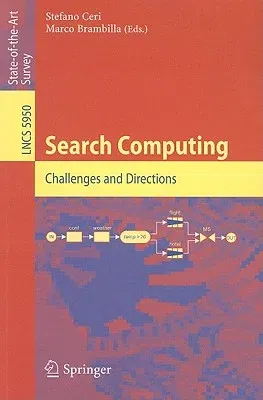Search Computing: Challenges and Directions (2010)Paperback - 2010, 1 April 2010

Qty
1
Turbo
Ships in 2 - 3 days
In Stock
Free Delivery
Cash on Delivery
15 Days
Free Returns
Secure Checkout
Part of Series
Lecture Notes in Computer Science: State-Of-The-Art Survey
Part of Series
Lecture Notes in Computer Science
Part of Series
Information Systems and Applications, Incl. Internet/Web, an
Print Length
321 pages
Language
English
Publisher
Springer
Date Published
1 Apr 2010
ISBN-10
3642123090
ISBN-13
9783642123092
Description
Product Details
Book Edition:
2010
Book Format:
Paperback
Country of Origin:
DE
Date Published:
1 April 2010
Dimensions:
23.37 x
15.75 x
2.03 cm
ISBN-10:
3642123090
ISBN-13:
9783642123092
Language:
English
Location:
Berlin, Heidelberg
Pages:
321
Publisher:
Series:
Weight:
557.92 gm

